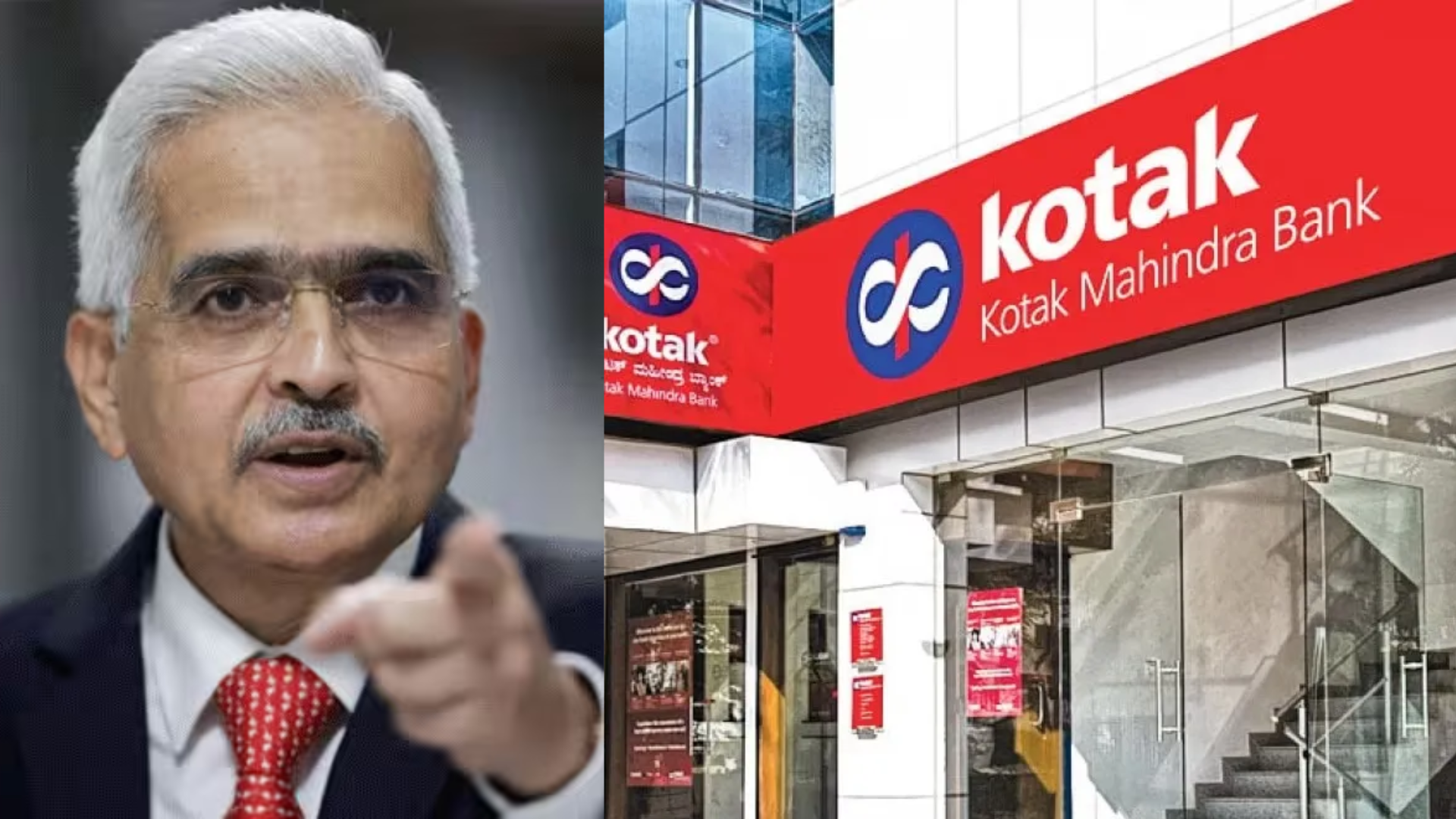Kotak Mahindra Bank, once known for its innovative approach and aggressive growth trajectory, has faced a series of setbacks in recent months. Previously lauded for its customer-centric services and strong financial performance, the bank now finds itself grappling with leadership exits and regulatory action from the Reserve Bank of India (RBI). This article will delve into these recent challenges, analyze their potential impact, and explore the road ahead for Kotak Mahindra Bank.
Key Issues

In April 2024, KVS Manian, a highly respected Joint MD, unexpectedly resigned from the bank. This created a sense of instability and cast doubt on the bank’s future direction. Investors, who value strong leadership and a clear vision, reacted negatively with a decline in the bank’s share price. This loss of confidence could potentially impact the bank’s ability to attract new capital and hinder its future growth plans.
RBI Action: A Clampdown on Kotak Mahindra Bank’s Growth

In a significant move, the Reserve Bank of India (RBI) has directed Kotak Mahindra Bank to halt the onboarding of new customers through its online and mobile banking channels and cease issuing fresh credit cards. This directive, issued under Section 35A of the Banking Regulation Act, 1949, aims to prevent the bank’s operations from being detrimental to the interests of depositors or prejudicial to the interests of the bank itself.
RBI’s Concerns and Action
The RBI’s decision stemmed from its findings of serious deficiencies and non-compliance with corrective action plans issued for the fiscal years 2022-23. Specifically, the regulator cited shortcomings in the bank’s IT infrastructure, IT inventory management, patch and change management, user access management, vendor risk management, data security, and disaster recovery preparedness. These deficiencies have led to frequent and significant outages in Kotak Mahindra Bank’s core banking system and digital channels over the past two years, culminating in a service disruption on April 15, 2024.
Nature of the Restrictions
The RBI’s restrictions specifically targeted Kotak Mahindra Bank’s online and digital operations, areas where the identified IT deficiencies posed the greatest risk. These restrictions included:
- Ban on Onboarding New Customers Through Digital Channels: This meant that Kotak Mahindra Bank could no longer acquire new customers through its online and mobile banking platforms such as Kotak811. New customers can still open accounts through physical branches.
- Halt on Issuing New Credit Cards: Existing credit card holders can renew their cards without any hassle. However, the issuance of new credit cards is temporarily halted until the RBI lifts the restrictions.
Potential Consequences for the Bank’s Business
The RBI’s action had several potential consequences for Kotak Mahindra Bank’s business:
- Stifled Growth: The ban on onboarding new customers through digital channels significantly limited the bank’s ability to expand its customer base. This could potentially affect the bank’s overall growth trajectory, especially in the crucial digital segment.
- Reduced Profitability: The halt on issuing new credit cards directly impacted a major source of revenue for the bank. Combined with the potential slowdown in customer acquisition, this could lead to a decline in Kotak Mahindra Bank’s overall profitability.
- Reputational Damage: The RBI’s action cast a shadow on Kotak Mahindra Bank’s reputation. Potential customers might be wary of choosing a bank with unresolved IT vulnerabilities. Existing customers might have concerns about data security and system reliability. This could lead to customer churn and a decline in overall trust in the bank.
- These restrictions served as a wake-up call for Kotak Mahindra Bank, highlighting the importance of robust IT infrastructure and data security practices. The bank now faces the challenge of addressing these deficiencies, regaining the trust of regulators and customers, and navigating a path towards sustainable growth.
Duration of Restrictions
The RBI has indicated that the restrictions will be subject to review upon completion of a comprehensive external audit, which the bank must commission with the prior approval of the RBI. The audit aims to address all deficiencies highlighted by both the external audit and RBI inspections. Typically, this remediation process could span six to twelve months.
Implications for Co-Branded Credit Card Deals

Experts predict that the RBI’s directive will directly impact Kotak Mahindra Bank’s co-branded credit card deals, including those with IndiGo Airlines, PVR, Indian Oil Corporation, Myntra, and Metro Cash and Carry. These partnerships, which offer unique benefits to cardholders, contribute significantly to the bank’s revenue stream. However, with the ban on issuing new credit cards, the bank’s ability to market and promote these co-branded products will be severely curtailed.
Short-Term Impact on Growth Prospects
The regulatory intervention by the RBI is expected to have immediate repercussions on the bank’s growth trajectory. Sumantha Mandal, Founder of TechnoFino and CreditPedia, highlights that Kotak Mahindra Bank will be unable to market its top-selling Kotak Myntra card following the regulatory action. This restriction on new customer acquisition could hinder the bank’s ability to expand its customer base and drive revenue growth in the short term.
Regulatory Scrutiny and Precedents
The RBI’s action against Kotak Mahindra Bank is not an isolated incident. Other financial institutions, such as HDFC Bank, Paytm Payments Bank, Bank of Baroda, Bajaj Finance, SBM Bank India, and Mahindra and Mahindra Financial Services, have faced regulatory scrutiny and penalties for various compliance lapses in recent years.
Leadership Transition and Strategic Vision

The regulatory developments coincide with a leadership transition at Kotak Mahindra Bank, with Ashok Vaswani assuming the role of MD & CEO following Uday Kotak’s departure. Vaswani’s strategic vision emphasizes a balanced approach to technology investment, prioritizing risk management and operational resilience to safeguard the bank’s long-term sustainability and competitiveness in the dynamic banking landscape.
Future Outlook and Market Response
Analysts predict a challenging road ahead for Kotak Mahindra Bank, with potential impacts on growth, net interest margins, and fee income. The bank’s share price plummeted by 10% in response to the RBI’s directive, reflecting investor concerns about the bank’s future trajectory.
Conclusion
The RBI’s decision underscores the importance of robust IT infrastructure and compliance with regulatory guidelines in the banking sector. Kotak Mahindra Bank now faces the arduous task of remedying the identified deficiencies, restoring regulatory trust, and charting a course for sustainable growth. As the bank navigates through this period of uncertainty, its ability to address regulatory concerns and regain investor confidence will be pivotal in shaping its future trajectory.

